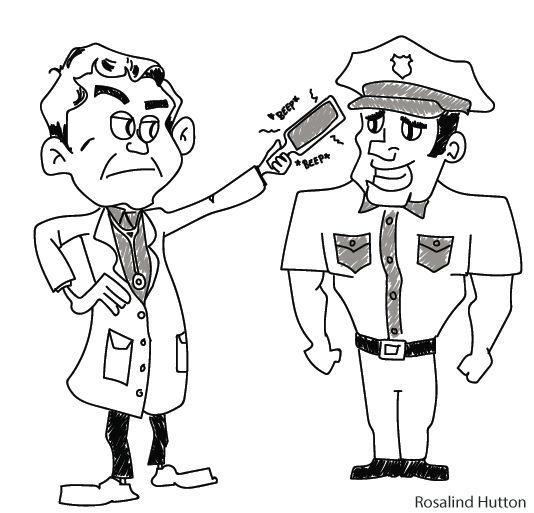In recent years, one question has stood out to me in a huge way: Why are police officers, staples of any community and armed with the authority to ruin someone’s life or even end it, allowed to wear the uniform without extensive mental health evaluations? Sure, there is the academy, but when looking at what exactly the police academy entails, it becomes clear police simply do not receive enough mental health-oriented training and screening to be considered safe for their communities. In a country rife with abuse of power and outright criminal behavior from police, I think now is the most important time in our country’s history to open a dialogue about what is wrong with the current system of police vetting and what it could, and should, look like.
In the Board on Law Enforcement Officer Standards and Training (BLEOST) Professional Certification Policy and Procedures Manual for Mississippi, which is a comprehensive view of the requirements and standard procedures for police training, there is barely any mention of mental health training or vetting, and what little there is remains extremely unclear. Where the firearms training has clear-cut guidelines with concrete requirements, the psychological evaluation, which does exist, is simply thrown in with the basic health examination and is allowed to be performed by the same doctor who performs the physical check-up.
While I cannot confirm the same for Mississippi specifically, police in other states who do complete a psychological evaluation can make it into the force on a “marginal” level of psychological compatibility, as determined by the examiner. In a 2004 study titled “Identifying Psychological Predictors of Police Officer Integrity Problems,” Gary Fischler, who has a doctorate in psychology, explores this issue and many others within the Minneapolis Police Department.
In it, Fischler states, “Since the overall psychologist rating is a consistently significant predictor of integrity problems, candidates rated as marginal should be considered more carefully before being hired. Results also suggest that psychologist ratings should be increasingly guided by heightened scrutiny of a history of alcohol misuse/abuse, evidence of a ‘party’ lifestyle, rule-violating behavior or antisocial attitudes, a history of judgment errors related to illogical thinking or misperception of situations, and evidence of distrust or cynicism related to others.”
What does not make sense is why people are allowed to become officers of the law if they are only “marginally” compatible with the position. Psychological health and world-views are essential to an acceptable performance of police duties. If a surgeon or a lawyer were only marginally fit for their jobs, nobody would ever want them employed. The same should go for police officers.
Sadly, it does not end there. Even the training for dealing with mentally ill individuals is laughably poor. The same BLEOST manual I referred to earlier has full-time Mississippi trainees spending 56 hours on “Patrol Operations.” This consists of 11 subtopics and includes many more applicable to daily police activities, such as “Stop and Approach” and “Use of Force and Incident Reporting and Documentation.” While such focus on patrol activities is fine, I, for one, would like police to be extremely adept at handling the mentally ill, as they are often abused and misunderstood by law enforcement. The BLEOST-recommended 5.1 hours is not going to cut it.
There are many discrepancies in policies for police training amongst the states and even amongst an individual state’s counties, so I do not mean to paint a picture that these problems are uniform everywhere or attempt to cherry-pick statistics from all over. There are many examples from almost every state that would simply take too much space for an opinion article. Even taking that away, there is an issue somewhere along the process of vetting potential officers, as seen by the overwhelmingly unacceptable level of police brutality in America.
It not only affects citizens and distances them from trusting the police, it even affects police officers themselves. In a 2018 article by Martin Kaste of NPR describing America’s police shortage, the growing concern over their policies and blatant law-breaking is named as a key contributor. The issue of inadequate mental health screening and training can and will continue to hamper America’s police force and their relationship with communities until it is addressed. More and more people who are not mentally fit to enforce the law will be handed a gun and sent out into the streets for all of us to answer to.
Categories:
Prospective police should receive further evaluation

Police should receive more evaluation
0
More to Discover















































































